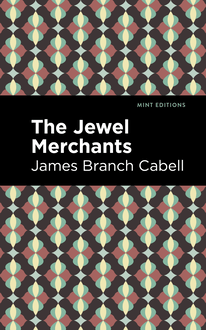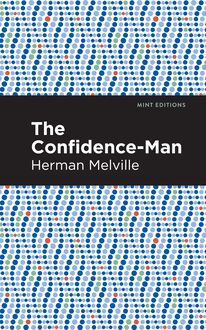-
 Univers
Univers
-
 Ebooks
Ebooks
-
 Livres audio
Livres audio
-
 Presse
Presse
-
 Podcasts
Podcasts
-
 BD
BD
-
 Documents
Documents
-
- Cours
- Révisions
- Ressources pédagogiques
- Sciences de l’éducation
- Manuels scolaires
- Langues
- Travaux de classe
- Annales de BEP
- Etudes supérieures
- Maternelle et primaire
- Fiches de lecture
- Orientation scolaire
- Méthodologie
- Corrigés de devoir
- Annales d’examens et concours
- Annales du bac
- Annales du brevet
- Rapports de stage
La lecture à portée de main
Vous pourrez modifier la taille du texte de cet ouvrage
Découvre YouScribe en t'inscrivant gratuitement
Je m'inscrisDécouvre YouScribe en t'inscrivant gratuitement
Je m'inscrisEn savoir plus
Vous pourrez modifier la taille du texte de cet ouvrage
En savoir plus

Description
The Rivet in Grandfather’s Neck (1921) is a comic romance novel by James Branch Cabell. Set in a world where history and fantasy collide, where the laws of chivalry and honor continue to hold sway in postbellum South, The Rivet in Grandfather’s Neck is included in a series of novels, essays, and poems known as the Biography of the Life of Manuel. “For Colonel Musgrave was by birth the lineal head of all the Musgraves of Matocton, which is in Lichfield, as degrees are counted there, equivalent to what being born a marquis would mean in England. Handsome and trim and affable, he defied chronology by looking ten years younger than he was known to be.” A man of honor and tradition, Colonel Musgrave comes from a prominent family whose wealth and power once depended on its ownership of slaves. Despite his illustrious title, “won by four years of arduous service at receptions and parades while on the staff of a former Governor of the State,” Musgrave is a librarian whose influence in town depends largely on the esteem of his ancestors. When a distant cousin visits Lichfield, bringing with her the intellect and wit of a modern woman, Colonel Musgrave finds how easily traditions can falter. Set in a fictionalized Southern town, The Rivet in Grandfather’s Neck is a captivating, hilarious tale of chivalry and romance. Cabell’s work has long been described as escapist, his novels and stories derided as fantastic and obsessive recreations of a world lost long ago. To read The Rivet in Grandfather’s Neck, however, is to understand that the issues therein—the struggle for power, the unspoken distance between men and women—were vastly important not only at the time of its publication, but in our own, divisive world. With a beautifully designed cover and professionally typeset manuscript, this edition of James Branch Cabell’s The Rivet in Grandfather’s Neck is a classic of fantasy and romance reimagined for modern readers.
Sujets
Informations
| Publié par | Mint Editions |
| Date de parution | 03 août 2021 |
| Nombre de lectures | 0 |
| EAN13 | 9781513297262 |
| Langue | English |
| Poids de l'ouvrage | 2 Mo |
Informations légales : prix de location à la page 0,0500€. Cette information est donnée uniquement à titre indicatif conformément à la législation en vigueur.
Extrait
The Rivet in Grandfather’s Neck
A Comedy of Limitations
James Branch Cabell
The Rivet in Grandfather’s Neck: A Comedy of Limitations was first published in 1915.
This edition published by Mint Editions 2021.
ISBN 9781513295763 | E-ISBN 9781513297262
Published by Mint Editions®
minteditionbooks.com
Publishing Director: Jennifer Newens
Design & Production: Rachel Lopez Metzger
Project Manager: Micaela Clark
Typesetting: Westchester Publishing Services
C ONTENTS P ART I. P ROPINQUITY P ART II. R ENASCENCE P ART III. T ERTIUS P ART IV. A PPRECIATION P ART V. S OUVENIR P ART VI. B YWAYS P ART VII. Y OKED P ART VIII. H ARVEST P ART IX. R ELICS P ART X. I MPRIMIS
I n the middle of the cupboard door was the carved figure of a man… He had goat’s legs, little horns on his head, and a long beard; the children in the room called him, “Major-General-field-sergeant-commander-Billy-goat’s-legs” … He was always looking at the table under the looking-glass where stood a very pretty little shepherdess made of china… Close by her side stood a little chimney-sweep, as black as coal and also made of china… Near to them stood another figure… He was an old Chinaman who could nod his head, and used to pretend he was the grandfather of the shepherdess, although he could not prove it. He, however, assumed authority over her, and therefore when “Major-general-field-sergeant-commander-Billy-goat’s-legs” asked for the little shepherdess to be his wife, he nodded his head to show that he consented.
Then the little shepherdess cried, and looked at her sweetheart, the chimney-sweep. “I must entreat you,” said she, “to go out with me into the wide world, for we cannot stay here.” … When the chimney-sweep saw that she was quite firm, he said, “My way is through the stove up the chimney.” … So at last they reached the top of the chimney… The sky with all its stars was over their heads… They could see for a very long distance out into the wide world, and the poor little shepherdess leaned her head on her chimney-sweep’s shoulder and wept. “This is too much,” she said, “the world is too large.” … And so with a great deal of trouble they climbed down the chimney and peeped out… There lay the old Chinaman on the floor… broken into three pieces… “This is terrible,” said the shepherdess. “He can be riveted,” said the chimney-sweep… The family had the Chinaman’s back mended and a strong rivet put through his neck; he looked as good as new, but when “Major-General-field-sergeant-commander-Billy-goat’s-legs” again asked for the shepherdess to be his wife, the old Chinaman could no longer nod his head.
And so the little china people remained together and were thankful for the rivet in grandfather’s neck, and continued to love each other until they were broken to pieces.
PART I
PROPINQUITY
“A singer, eh? … Well, well! but when he sings
Take jealous heed lest idiosyncrasies
Entinge and taint too deep his melodies;
See that his lute has no discordant strings
To harrow us; and let his vaporings
Be all of virtue and its victories,
And of man’s best and noblest qualities,
And scenery, and flowers, and similar things .
“Thus Bid Our Paymasters Whose Mutterings
Some Few Deride, And Blithely Link Their Rhymes
At random; and, as ever, on frail wings
Of wine-stained paper scribbled with such rhymes
Men mount to heaven, and loud laughter springs
From hell’s midpit, whose fuel is such rhymes.”
— P AUL V ERVILLE . Nascitur
I
A t a very remote period, when editorials were mostly devoted to discussion as to whether the Democratic Convention (shortly to be held in Chicago) would or would not declare in favor of bi-metallism; when golf was a novel form of recreation in America, and people disputed how to pronounce its name, and pedestrians still turned to stare after an automobile; when, according to the fashion notes, “the godet skirts and huge sleeves of the present modes” were already doomed to extinction; when the baseball season had just begun, and some of our people were discussing the national game, and others the spectacular burning of the old Pennsylvania Railway depot at Thirty-third and Market Street in Philadelphia, and yet others the significance of General Fitzhugh Lee’s recent appointment as consul-general to Habana: at this remote time, Lichfield talked of nothing except the Pendomer divorce case.
And Colonel Rudolph Musgrave had very narrowly escaped being named as the co-respondent. This much, at least, all Lichfield knew when George Pendomer—evincing unsuspected funds of generosity—permitted his wife to secure a divorce on the euphemistic grounds of “desertion.” John Charteris, acting as Rudolph Musgrave’s friend, had patched up this arrangement; and the colonel and Mrs. Pendomer, so rumor ran, were to be married very quietly after a decent interval.
Remained only to deliberate whether this sop to the conventions should be accepted as sufficient.
“At least,” as Mrs. Ashmeade sagely observed, “we can combine vituperation with common-sense, and remember it is not the first time a Musgrave has figured in an entanglement of the sort. A lecherous race! proverbial flutterers of petticoats! His surname convicts the man unheard and almost excuses him. All of us feel that. And, moreover, it is not as if the idiots had committed any unpardonable sin, for they have kept out of the newspapers.”
Her friend seemed dubious, and hazarded something concerning “the merest sense of decency.”
“In the name of the Prophet, figs! People—I mean the people who count in Lichfield—are charitable enough to ignore almost any crime which is just a matter of common knowledge. In fact, they are mildly grateful. It gives them something to talk about. But when detraction is printed in the morning paper you can’t overlook it without incurring the suspicion of being illiterate and virtueless. That’s Lichfield.”
“But, Polly—”
“Sophist, don’t I know my Lichfield? I know it almost as well as I know Rudolph Musgrave. And so I prophesy that he will not marry Clarice Pendomer, because he is inevitably tired of her by this. He will marry money, just as all the Musgraves do. Moreover, I prophesy that we will gabble about this mess until we find a newer target for our stone throwing, and be just as friendly with the participants to their faces as we ever were. So don’t let me hear any idiotic talk about whether or no I am going to receive her—”
“Well, after all, she was born a Bellingham. We must remember that.”
“Wasn’t I saying I knew my Lichfield?” Mrs. Ashmeade placidly observed.
A ND TIME , INDEED , ATTESTED HER to be right in every particular.
Yet it must be recorded that at this critical juncture chance rather remarkably favored Colonel Musgrave and Mrs. Pendomer, by giving Lichfield something of greater interest to talk about; since now, just in the nick of occasion, occurred the notorious Scott Musgrave murder. Scott Musgrave—a fourth cousin once removed of the colonel’s, to be quite accurate—had in the preceding year seduced the daughter of a village doctor, a negligible “half-strainer” up country at Warren; and her two brothers, being irritated, picked this particular season to waylay him in the street, as he reeled homeward one night from the Commodores’ Club, and forthwith to abolish Scott Musgrave after the primitive methods of their lower station in society.
These details, indeed, were never officially made public, since a discreet police force “found no clues”; for Fred Musgrave (of King’s Garden), as befitted the dead man’s well-to-do brother, had been at no little pains to insure constabulary shortsightedness, in preference to having the nature of Scott Musgrave’s recreations unsympathetically aired. Fred Musgrave thereby afforded Lichfield a delectable opportunity (conversationally and abetted by innumerable “they do say’s”) to accredit the murder, turn by turn, to every able-bodied person residing within stone’s throw of its commission. So that few had time, now, to talk of Rudolph Musgrave and Clarice Pendomer; for it was not in Lichfieldian human nature to discuss a mere domestic imbroglio when here, also in the Musgrave family, was a picturesque and gory assassination to lay tongue to.
So Colonel Musgrave was duly re ë lected that spring to the librarianship of the Lichfield Historical Association, and the name of Mrs. George Pendomer was not stricken from the list of patronesses of the Lichfield German Club, but was merely altered to “Mrs. Clarice Pendomer.”
A T THE BOTTOM OF HIS heart Colonel Musgrave was a trifle irritated that his self-sacrifice should be thus unrewarded by martyrdom. Circumstances had enabled him to assume, and he had gladly accepted, the blame for John Charteris’s iniquity, rather than let Anne Charteris know the truth about her husband and Clarice Pendomer. The truth would have killed Anne, the colonel believed; and besides, the colonel had enjoyed the performance of a picturesque action.
And having acted as a hero in permitting himself to be pilloried as a libertine, it was preferable of course not to have incurred ostracism thereby. His common-sense conceded this; and yet, to Colonel Musgrave, it could not but be evident that Destiny was hardly rising to the possibilities of the situation.
II
C oncerning Colonel Musgrave one finds the ensuing account in a publication of the period devoted to biographies of more or less prominent Americans. It is reproduced unchanged, because these memoirs were—in the old days—compiled by the person whom they commemorated. The custom was a worthy one, since the value of an autobiography is determined by the nature of its superfluities and falsehoods.
“M USGRAVE , R UDOLPH V ARTREY , editor; b . Lichfield, Sill., Mar. 14, 1856; s . William Sebastian and Martha (Allardyce) M; g. s . Theodorick Q.M., gov. of Sill. 1805–8, judge of the General Ct., 1808–11, judge Supreme Ct. of Appeals, 1811–50 and pres. Supreme Ct. of Appeal
-
 Univers
Univers
-
 Ebooks
Ebooks
-
 Livres audio
Livres audio
-
 Presse
Presse
-
 Podcasts
Podcasts
-
 BD
BD
-
 Documents
Documents
-
Jeunesse
-
Littérature
-
Ressources professionnelles
-
Santé et bien-être
-
Savoirs
-
Education
-
Loisirs et hobbies
-
Art, musique et cinéma
-
Actualité et débat de société
-
Jeunesse
-
Littérature
-
Ressources professionnelles
-
Santé et bien-être
-
Savoirs
-
Education
-
Loisirs et hobbies
-
Art, musique et cinéma
-
Actualité et débat de société
-
Actualités
-
Lifestyle
-
Presse jeunesse
-
Presse professionnelle
-
Pratique
-
Presse sportive
-
Presse internationale
-
Culture & Médias
-
Action et Aventures
-
Science-fiction et Fantasy
-
Société
-
Jeunesse
-
Littérature
-
Ressources professionnelles
-
Santé et bien-être
-
Savoirs
-
Education
-
Loisirs et hobbies
-
Art, musique et cinéma
-
Actualité et débat de société
- Cours
- Révisions
- Ressources pédagogiques
- Sciences de l’éducation
- Manuels scolaires
- Langues
- Travaux de classe
- Annales de BEP
- Etudes supérieures
- Maternelle et primaire
- Fiches de lecture
- Orientation scolaire
- Méthodologie
- Corrigés de devoir
- Annales d’examens et concours
- Annales du bac
- Annales du brevet
- Rapports de stage



















